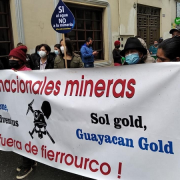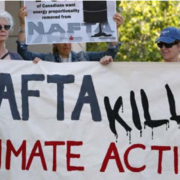8-Feb-2023
Rosa Luxemburg Stiftung
Investor rights in the expired North American Free Trade Agreement continue to undermine democratic decision-making and climate policy in Mexico, Canada, and the United States.
3-Feb-2023
The American Prospect
The president has promised not to put anti-democratic investor-state dispute settlement mechanisms in future trade deals. But they are still in many existing ones.
25-Jan-2023
The Hill Times
Controversial ISDS provisions are trumpeted for protecting Canadian foreign investments, but are panned for allowing companies to sue countries.
25-Jan-2023
Saskia Bricmont
This report analyzes the proposed interpretive guidance on the Investment Chapter of the Comprehensive Economic and Trade agreement (CETA) between Canada and the European Union.
23-Jan-2023
Open Democracy
The treaty allows fossil fuel companies to sue governments for taking climate change action. It must go.
23-Jan-2023
The Conversation
A relatively new strategy for China is to challenge national security decisions before international tribunals using a method called investor-state dispute settlement.
20-Jan-2023
The Daily Star
The Consumers Association of Bangladesh (CAB) submitted a petition, signed by 25,720 persons, urging the energy ministry for not signing the Energy Charter Treaty as the signing of the treaty will affect the public interest and the nation’s energy sector.







